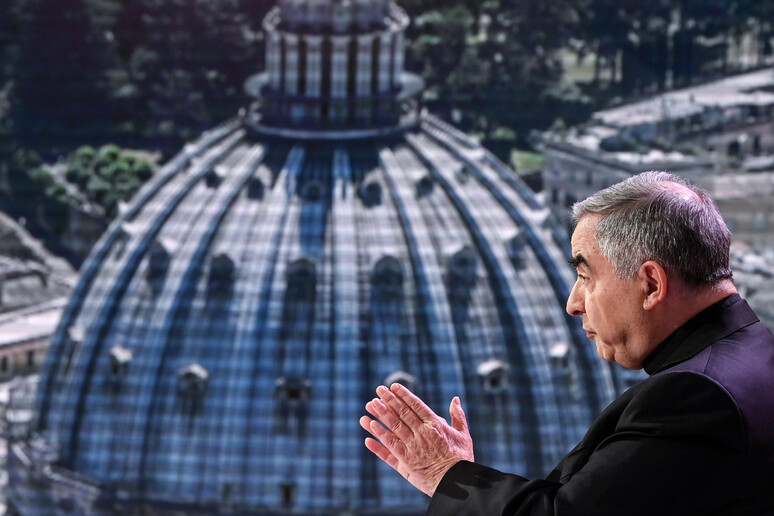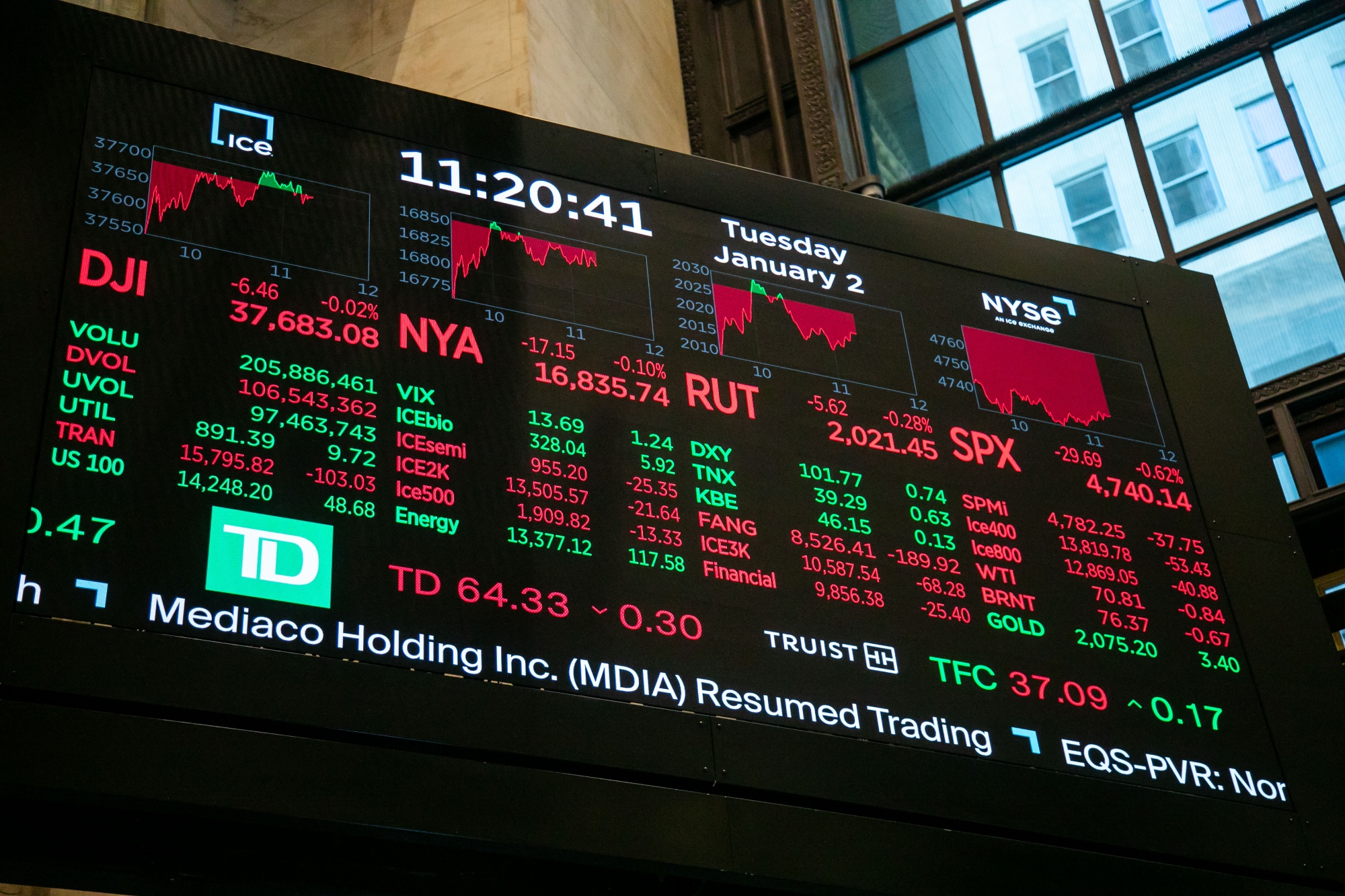Meta's Future Under A Trump Presidency: Zuckerberg's Challenges

Table of Contents
Renewed Regulatory Scrutiny
A Trump presidency is likely to bring intensified regulatory scrutiny of Meta, potentially impacting its business model and future growth. This increased oversight stems from a confluence of factors, including concerns about market dominance and data privacy practices. The potential consequences for Meta are substantial.
Antitrust Concerns
Expect a resurgence of antitrust investigations and potential lawsuits targeting Meta's market dominance in social media and advertising. The previous administration showed a willingness to challenge large tech companies, and a second Trump term could see this intensified.
- Increased pressure to divest from Instagram and WhatsApp: The argument that Meta's acquisition of these platforms stifled competition could be reignited, leading to demands for divestiture.
- Potential fines and restrictions on data collection practices: Concerns over Meta's vast data collection practices could result in significant fines and limitations on how it gathers and uses user data. This would directly impact Meta's advertising business model.
- Greater scrutiny of Meta's advertising algorithms and their impact on political advertising: The algorithms used to target political advertisements could come under intense scrutiny, potentially leading to regulations aimed at increasing transparency and preventing manipulation. The influence of targeted advertising on elections will be a major focus.
Data Privacy Regulations
The already complex web of data privacy regulations (like CCPA and GDPR) could become even more challenging under a stricter regulatory environment. A Trump administration, while potentially less focused on international agreements, might prioritize domestic data protection laws, creating new hurdles for Meta.
- Increased enforcement of existing laws like CCPA and GDPR: Expect more aggressive enforcement of existing data privacy laws, leading to increased compliance costs and potential penalties for non-compliance.
- Potential for new legislation targeting data collection and usage by large tech companies: New laws could be introduced, specifically designed to restrict the data collection and usage practices of large tech companies like Meta.
- Heightened pressure to enhance data security measures: The expectation of stronger data security measures will increase, requiring significant investments in infrastructure and security protocols. Data breaches could lead to even greater regulatory pressure and reputational damage.
Navigating Political Polarization
Meta faces the constant challenge of moderating content and combating misinformation, a task amplified by political polarization. A Trump presidency could exacerbate this issue, creating a minefield for Meta's content moderation policies.
Content Moderation Challenges
Balancing free speech with the need to remove harmful content will become increasingly difficult, especially with potentially more contentious political discourse. The pressure to be perceived as unbiased will be immense, regardless of the actions taken.
- Increased pressure from both sides of the political spectrum to moderate content differently: Meta will likely face criticism from both the left and the right, regardless of its content moderation decisions, potentially leading to accusations of bias.
- Difficulty in establishing consistent and unbiased content moderation policies: Developing and implementing fair and consistent content moderation policies will become increasingly complex and challenging.
- Potential for boycotts and accusations of bias regardless of actions taken: Meta could face boycotts and significant reputational damage, regardless of the steps it takes to moderate content.
Combating Misinformation
The spread of misinformation and disinformation campaigns is a major threat to democratic processes, and Meta will be under immense pressure to mitigate this. The challenge will be to balance free speech with the need to prevent the spread of harmful falsehoods.
- Increased investment in fact-checking initiatives and AI-driven detection technologies: Meta will need to significantly increase its investment in technologies and resources to combat misinformation.
- Potential legal challenges related to the removal of allegedly false or misleading information: Removing content could trigger legal challenges, particularly when dealing with politically charged statements.
- Navigating differing interpretations of what constitutes misinformation: Defining and identifying misinformation will become more challenging in a highly polarized environment with differing interpretations of facts.
The Impact on Meta's Advertising Revenue
Meta's substantial advertising revenue stream could face significant headwinds under a new Trump administration. Changes in regulations and broader economic uncertainty could negatively impact advertising spending.
Political Advertising Restrictions
Expect stricter regulations on political advertising, potentially impacting Meta's revenue and its ability to profit from political campaigns. Transparency and accountability will be central themes.
- Increased transparency requirements for political advertising: Expect more stringent rules on disclosing who is paying for political ads and the targeting parameters used.
- Limits on the targeting of political ads: Restrictions on the ability to target specific demographics with political ads could significantly reduce the effectiveness (and thus revenue) of political campaigns on Meta's platforms.
- Potential bans on certain types of political advertising: Certain types of political advertising deemed misleading or manipulative could be banned altogether.
Economic Uncertainty
A Trump presidency could bring economic uncertainty, affecting consumer spending and therefore Meta's advertising revenue. Businesses may reduce their advertising budgets in times of economic hardship.
- Potential for reduced advertising budgets from businesses facing economic hardship: Economic downturns often lead to reduced marketing and advertising spending.
- Increased competition for advertising dollars: Meta will face increased competition for advertising dollars from other platforms and traditional media.
- The need for Meta to diversify its revenue streams beyond advertising: Meta may need to explore new revenue streams to reduce its reliance on advertising.
Conclusion
Meta's future under a Trump presidency presents significant challenges for Zuckerberg and the company. Increased regulatory scrutiny, heightened political polarization, and potential impacts on advertising revenue necessitate strategic adaptation and proactive planning. Understanding these potential challenges is crucial for investors, policymakers, and Meta itself. Navigating the complexities of Meta's future under Trump requires careful consideration of the issues outlined above. Staying informed about the evolving political and regulatory landscape surrounding Meta's future under Trump is essential for anyone interested in the future of social media and technology.

Featured Posts
-
 Processo Becciu Innocenza Proclamata Appello Dal 22 Settembre
May 01, 2025
Processo Becciu Innocenza Proclamata Appello Dal 22 Settembre
May 01, 2025 -
 Cleveland Cavaliers Week 16 Review Trade Rest And Road Ahead
May 01, 2025
Cleveland Cavaliers Week 16 Review Trade Rest And Road Ahead
May 01, 2025 -
 Why Current Stock Market Valuations Are Not A Reason For Investor Panic Bof A
May 01, 2025
Why Current Stock Market Valuations Are Not A Reason For Investor Panic Bof A
May 01, 2025 -
 Impact Of River Road Construction On Louisvilles Restaurant Industry
May 01, 2025
Impact Of River Road Construction On Louisvilles Restaurant Industry
May 01, 2025 -
 X Files Gillian Andersons Return And Unexpected Anxiety
May 01, 2025
X Files Gillian Andersons Return And Unexpected Anxiety
May 01, 2025
